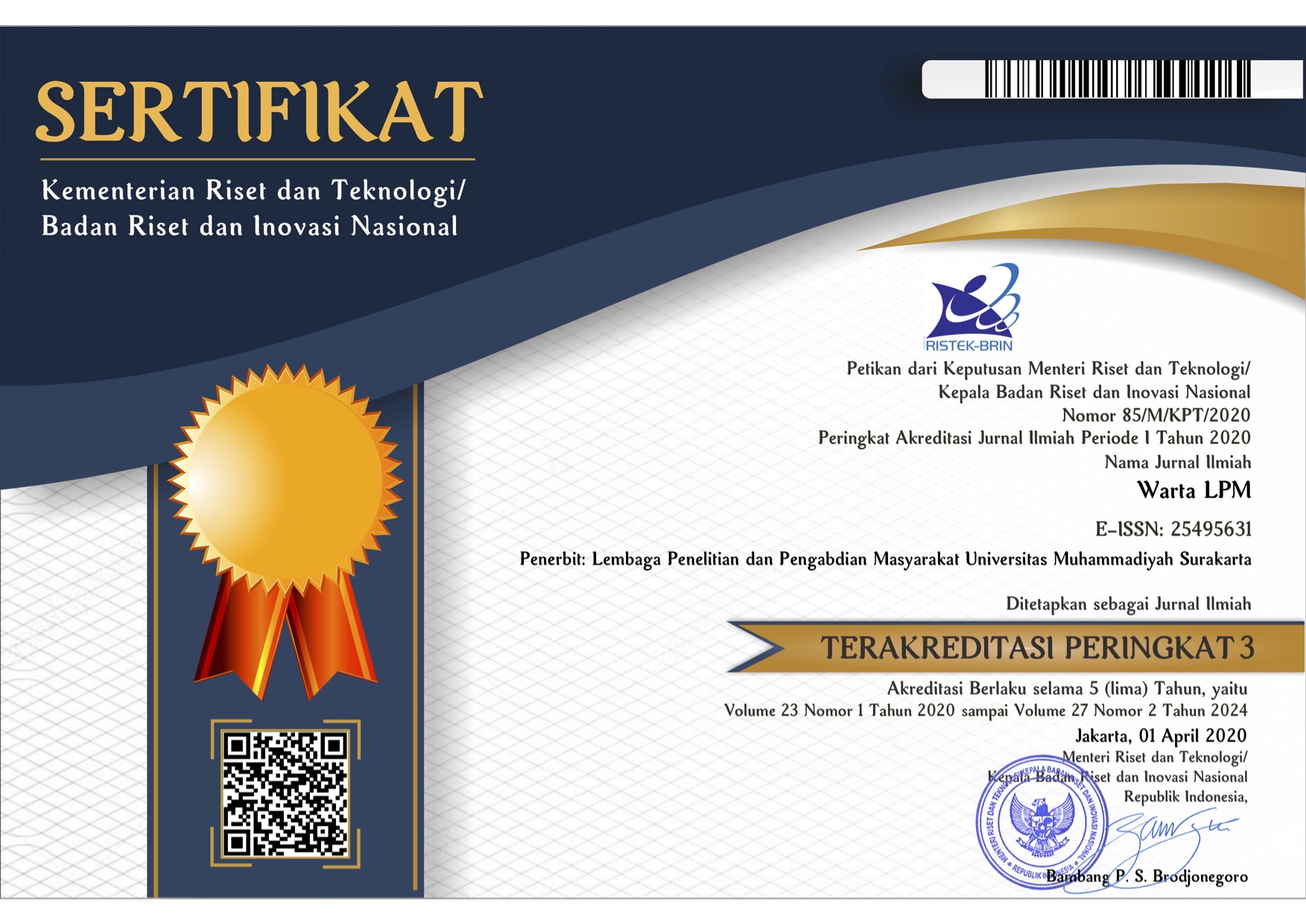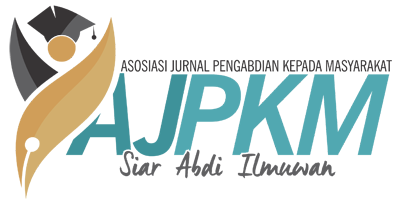KAJIAN PSIKOLOGI BELAJAR: MENGUKIR PRESTASI MELALUI PENGENALAN DIRI DAN OPTIMALISASI POTENSI
Eny Purwandari(1*)(1) Fakultas Psikologi Universitas Muhammadiyah Surakarta
(*) Corresponding Author
Abstract
individual. In this process, it is likely that an individual knows his strength
and weakness. The strength does not always cause benefit, on the other
hand the weakness does not always cause a misplace. However, if both
of them are managed well, it will cause something extraordinary. The
student has to know his self knowledge to get the best achievement. Some
of the things that should be considered are: style of learning, emotion
and the ways of life orientation. For the students of MAN I Sragen, the
learning style tends to be auditory. They manage their emotion well enough,
and their ways of life are focused on three things namely: spirit, family
harmony, and achievement. Based on the result of social service, the
students and the teachers have to use and maximize it well so that their
positive potential can be optimized and developed well either individually
or collectively in the educational institution.
Keywords
Full Text:
PDFReferences
Antariksa. 2002. Studi Emosi. http. www. Geocities.com. 10 Januari 2002.
Berry, J.W, Poortinga, Y, Segall, M, dan Dasen, P.R. 1999. Psikologi Lintas
Budaya: Riset dan Aplikasi. Alih Bahasa : Edi Suhardono. Jakarta:
PT. Gramedia.
De Porter, B., & Hernachi, M. 2000 Quantum Learning. Bandung: PT.
Kaifa.
Dunn, R. & Dunn, K. 1998. The Sheme of Learning Style. Retieved Juli,
, 2002, from http://www.learning style.ned/n3.htlm.
Elliot, S.N., Kratochwill, T.R., Littlefield, J., Travers, J . F. 1997. Educational
Psychologi Effective Teachine, Effective Learning. Singapore:
McGraw-Hill.
Fleming, N.D. 2002. VARK: A Guide to Learning Styles. Retrieved Juli 4,
, from
http://www.vark-learn.com.
Goleman, Daniel. 1996. Emotional Intelligence. Jakarta: PT. SUN.
Gregory, R. 2000. Psychological Testing, History, Principles, and
Application. USA: Allyn and Bacon, Inc.
Jopson, A. dan Zhao, T. t.t. Effect Personal Values on Auditors Ethical
Decisions. www.yahoo.com.rokeach values survey application.
Hartanti dan Arhartanto. 20003. Profil Gaya Belajar Mahasiswa Baru: Survei
Berdasarkan Metode Barbe dan Swassing. Anima, Indonesian
Psychological Journal. Vol. 18, No. 3, 295 – 307.
Hawari, D. 1997. Al Qur’an Ilmu Kedokteran Jiwa dan Kesehatan Jiwa.
Jakarta: Dana Bhakti Prima Yasa.
Hurlock, E.B. 1996. Psikologi Perkembangan. Jakarta: Erlangga.
Kniker, C. R. 1977. You And Values Education. USA: Charles E. Merrill
Publishing Company.
Lazarus, R.S. 1991. Emotion and Adaptation. New York: Oxford University
Press.
Ovadia, S. 2004. “Rating and Rangkings: Reconsidering The Structure of
Values and Their Measurement”. International Journal of Social
Research Methodology, Vol. 7, No. 5, 403-414.
Renzetti dan Curran. 1998. Values, Sosial Problem and Religiosity - A
Survey.
www.yahoo.com.rokeach values survey application.
Rokeach, M. 1973. The Nature of Human Values. New York: The Free
Press.
Tilman, D. 2004. Living Values Activities for Young Adults. Pendidikan
Nilai untuk Kaum Dewasa –Muda. Jakarta: Grasindo.
Tjundjing, A dan Lasmono. 2003. “Profil Preferensi VARK pada Mahasiswa
Baru”.. Anima, Indonesian Psychological Journal Vol. 18, No.3,
– 294.
Article Metrics
Abstract view(s): 1411 time(s)PDF: 1314 time(s)
Refbacks
- There are currently no refbacks.









